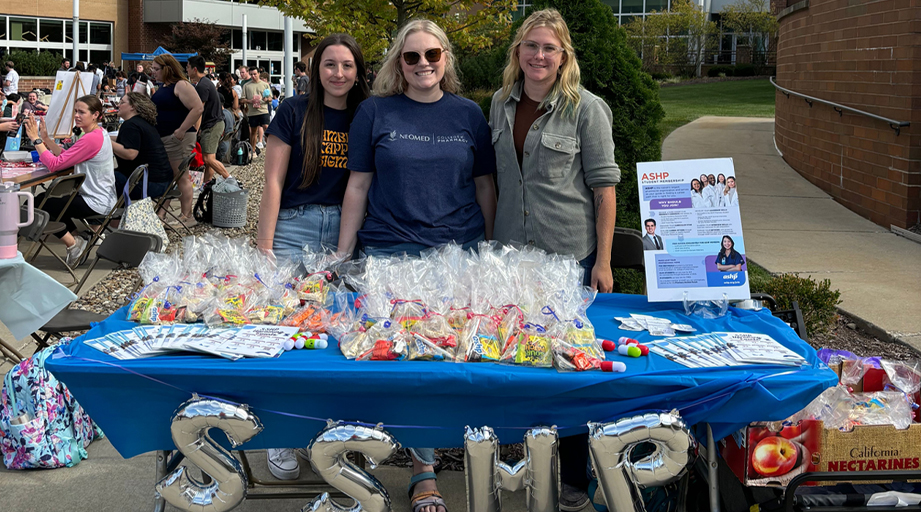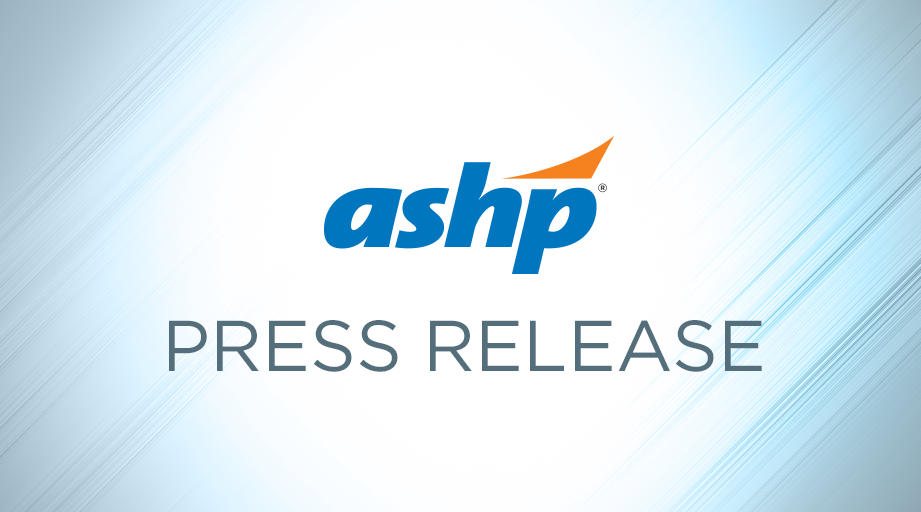
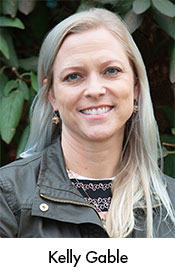 The COVID-19 pandemic is an added layer of stress for student pharmacists as they complete their challenging curriculum and begin their professional lives, says Kelly Gable, professor and director of well-being and resilience at the Southern Illinois University Edwardsville (SIUE) School of Pharmacy.
The COVID-19 pandemic is an added layer of stress for student pharmacists as they complete their challenging curriculum and begin their professional lives, says Kelly Gable, professor and director of well-being and resilience at the Southern Illinois University Edwardsville (SIUE) School of Pharmacy.
“People are struggling,” Gable said. “We’re seeing it within the field of pharmacy, medicine, nursing. ... They’re stressed to the max right now.”
That stress has manifested in measurable burnout, anxiety, and depression, according to the results of research projects conducted by student pharmacists in Pennsylvania and Louisiana.
“I think I can speak for all of us that we’ve had an impact on mental health throughout pharmacy school,” said Nina Thoguluva, fourth-year student at Temple University School of Pharmacy in Philadelphia, Pennsylvania.
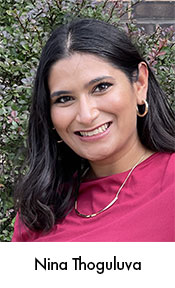 Thoguluva spoke on behalf of fellow students Chandni Malani and Krina Naik. The three were coauthors of The Mental Health of Pharmacy Students Amidst the COVID-19 Shutdown, which was presented as a poster at ASHP’s 2021 Midyear Clinical Meeting & Exhibition.
Thoguluva spoke on behalf of fellow students Chandni Malani and Krina Naik. The three were coauthors of The Mental Health of Pharmacy Students Amidst the COVID-19 Shutdown, which was presented as a poster at ASHP’s 2021 Midyear Clinical Meeting & Exhibition.
For their research project, the students used the Patient Health Questionnaire-9 assessment to screen their fellow student pharmacists for depression and the General Anxiety Disorder 7 scale to test for anxiety.
Of the approximately 115 students who participated in the survey-based project, 56% met screening criteria for depression and 46% met criteria for anxiety.
An unrelated survey of 118 students the University of Louisiana at Monroe College of Pharmacy found that nearly all reported symptoms of burnout, said fourth-year student Taylor Robichaux, coauthor of a poster on burnout presented at the 2021 Midyear.
Robichaux and his coauthors asked students to estimate their degree of burnout, as defined by the five-stage Copenhagen Burnout Inventory, and then to complete the burnout assessment. On average, students scored at stage 3 on the scale, indicating a chronic level of stress that surpassed participants’ pre-assessment estimates.
“About 50% of them had underestimated their level of stress by one degree, one stage,” Robichaux explained. “When I took the survey personally, I underestimated it by one stage as well. So I think this helps us become cognizant of the level of stress that we are in.”
The study found that burnout levels rose with the number of hours a student worked. Robichaux said one of the most surprising findings from the project was that as a student’s grade point average increased, the likelihood of burnout fell.
The Temple students’ research project also identified factors that shielded against mental distress. Specifically, sleeping at least six hours per night, expressing gratitude at least once weekly, and awareness of support from social circles, family members, and the pharmacy program protected against anxiety, depression, or both.
In contrast, stress from health issues and relationships correlated with an increased chance of depression and anxiety.
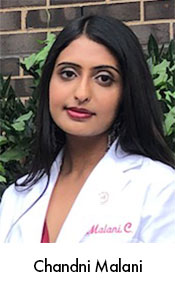 “It makes sense, considering everyone was kind of forced to stay home,” Malani said. She said stress arose from the lack of closeness to people outside of the home and, conversely, relationship conflicts from being cooped up with housemates.
“It makes sense, considering everyone was kind of forced to stay home,” Malani said. She said stress arose from the lack of closeness to people outside of the home and, conversely, relationship conflicts from being cooped up with housemates.
Both studies surveyed students in years one through four of pharmacy school, and data were collected during the poster coauthors’ third year of pharmacy school. The Temple students said their third year was upended by the COVID-19 pandemic.
“We were studying for almost 15 hours a day,” Naik said. “We didn’t have any physical contact with our classmates. We were just attending classes and going through our day at home, being secluded from the outside world. I felt very anxious all the time.”
SIUE’s Gable said some of her students felt exhausted from being “on” all day long in a virtual learning environment, and many felt lonely and isolated.
“On top of that, in a really rigorous program, it’s nice to lean on other people and hear that they’re doing OK, or they’re struggling as well, so you don’t feel so alone,” Gable said. “And I think we miss a little bit of that when we’re all virtual.”
But she said some students thrive under virtual learning models.
“They feel safer, they feel it works better for them,” Gable said. “They’re able to maintain their focus and they ... feel more comfortable in their own environment.”
The three Temple students said their fourth year, which focuses on clinical rotations instead of classroom work, has been far more enjoyable than the previous year.
“I absolutely love being in person. It feels like the relationships are so much different, the experience is so much different. I learn in a different way when I’m in person,” Thoguluva said.
But she and her research partners have lingering concerns about missed opportunities, during the virtual year, for networking and nurturing professional relationships.
Gable said it takes active initiative from students and mentors to check in with each other and maintain connections when they can’t meet face to face.
“I think that mentor relationships have actually thrived online and virtual, in that there’s more opportunity to squeeze in a Zoom or a Teams meeting. And we actually get to see each other face to face without masks on, because we’re virtual,” Gable said. “Even if it’s a 10–30 minute Zoom call, it’s valuable.”
She also said virtual events offer networking opportunities that can help students build professional relationships.
“When students go to a virtual conference, it’s easy to go and just listen to a talk and then pop off. But you can find that there are networking opportunities where you can pop into a small group chat and you can meet other people that are interested in your specialty area. And you can meet some leaders in that specialty area. If you open yourself up as a student to those opportunities, that will allow you to continue to grow,” Gable said.
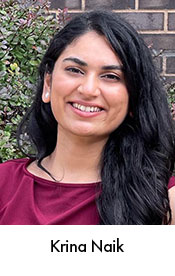 Naik said the research project confirmed how common mental distress is among her peers. But she’s also observed that health professionals are increasingly open to discussing behavioral health challenges and reaching out for professional help when they need it.
Naik said the research project confirmed how common mental distress is among her peers. But she’s also observed that health professionals are increasingly open to discussing behavioral health challenges and reaching out for professional help when they need it.
“I think therapy is right for everyone, and I don’t think you need to fall into a specific box for you to be able to go to therapy,” Naik said.
Gable said the current generation of students is “amazing” in their willingness to air behavioral health challenges.
“There is a lot of comfort that people have to openly share, or to approach a safe faculty member and just say, ‘I’m struggling,’” she said.
Gable said all first-year pharmacy students at SIUE take the Professional Quality of Life (ProQOL) assessment as part of their training.
“We do it all together as a class, and then we walk through what it means,” Gable said. The test allows students to reflect on burnout, compassion fatigue, and satisfaction in their day-to-day lives and to help them know when to make changes or seek help.
Gable encourages students to retake the test throughout their professional lives and as their circumstances change. And she said exposing students to the ProQOL test early in their training reinforces the idea that it’s OK to talk about behavioral health challenges.
“Having said that, the stigma is still very strong. And we will continue to do everything we can to reduce that stigma. But it’s refreshing to see folks embrace that it’s OK to talk about it and it’s OK to get help,” she said.
ASHP's Well-Being & You resource center offers tools and support to help build a more resilient pharmacy workforce.





